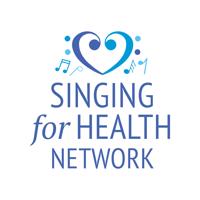4- Part Course - Singing For Health: An Introduction To Quantitative Methods
Wednesday 1st February 2023, 10:00 AM - Wednesday 22nd February 2023 12:00 PM (London Time)
This event is part of our fundraising series for the Singing for Health Network.
A Singing For Health Network membership is required to attend this course.
This course will introduce central concepts in research design, measurement, sampling, and statistical analysis underpinning quantitative methods in research on singing for health.
We will consider examples of survey methods, observational pre-post studies and controlled trials on singing and health, and the approaches adopted in data gathering and analysis.
Students will be supported in undertaking critical assessments of selected quantitative research studies on singing and health.
We will also work through exercises in the statistical treatment of quantitative data to answer research questions and test hypotheses.
Session 1
The nature of singing and a suggested logic model of singing for health. The need critical appraisal of research studies and the role of evidence reviews. Survey methods in singing for health research. An introduction to random sampling and statistical inference. Primary and secondary qualities. Levels of measurement and the analysis of categorical data using the chi-squared test.
Session 2
Singing for mental health. Examination of primary qualitative and quantitative studies. Systematic reviews of research on singing and mental wellbeing. Observational pre-test post-test studies. Use of standardized measures that give ordinal data on mental wellbeing and mental distress. Analysis of ordinal data using non-parametric statistical tests.
Session 3
Singing for better breathing. Examination of primary qualitative and quantitative studies. Systematic and Cochrane reviews of research on singing and lung disease. Use of objective measures of lung function that give interval/ratio data. Analysis of objective measurements using parametric tests.
Session 4
Randomised controlled trials on singing and health. Critical appraisal of examples singing for health trials. Issues in the standardization of singing programmes and the nature of control groups. Use of the CONSORT statement and registration of trials. Statistical analysis and interpretation of trial data. Value of embedded qualitative studies within controlled trials.
Professor Stephen Clift
Stephen Clift is Professor Emeritus, Canterbury Christ Church University, and former Director of the Sidney De Haan Research Centre for Arts and Health...
Singing For Health Network
The Singing for Health Network is a UK-based membership network for anyone interested or involved in Singing for Health, including singing practitioners, researchers...
Sorry, this is an archived short course...
We have plenty of upcoming short courses coming soon. See details of some of them below or look at the full list of short courses.


Tuesday 3rd March 2026
5:00 PM - 7:00 PM
(London Time)
Sex differences in VOICE!

Dr Richard Lissemore
This two-hour workshop, led by performer, articulatory phoneticist, and voice physiologist, Dr. Richard Lissemore, will examine in detail the role that biological sex plays in the perception and pedagogy of singing voices. We'll consider how parameters such as anatomy, physiology, articulation, resonance, and radiated acoustics influence the perceptions and pedagogical decision-making of singing teachers.

Wednesday 4th March 2026
1:00 PM - 2:00 PM
Wednesday 11th March 2026
1:00 PM - 2:00 PM
Wednesday 18th March 2026
1:00 PM - 2:00 PM
Wednesday 25th March 2026
1:00 PM - 2:00 PM
Wednesday 1st April 2026
1:00 PM - 2:00 PM
Wednesday 8th April 2026
1:00 PM - 2:00 PM
(London Time)
Learn to Coach RP and SSBE – a Certificate in Accent Coaching

Louisa Morgan
This six-week course is an opportunity to learn about both Received Pronunciation and Standard Southern British English. Rather than a course in learning how to speak RP/SSBE (there are many brilliant available courses for this already), this course is about learning how to coach it.

Thursday 5th March 2026
1:00 PM - 2:30 PM
Thursday 12th March 2026
1:00 PM - 2:30 PM
(London Time)
Acting Emotion: Perspectives from the Masters

Louisa Morgan
Stanislavski said, “our artistic emotions are, at first, as shy as wild animals and they hide in the depths of our souls.” Michael Chekhov said, our bodies should be like a “sensitive membrane, a kind of receiver and conveyor of the subtlest images, feelings, emotions and will impulses.” And Meisner said we should be “living truthfully under imaginary circumstances.” Join Louisa Morgan in this 2-part course as she explores a range of well-known acting practitioners to investigate what they believed (or believe) about emotion and how they approached it in their work. She'll compare their work to see where they align and where they diverge.

